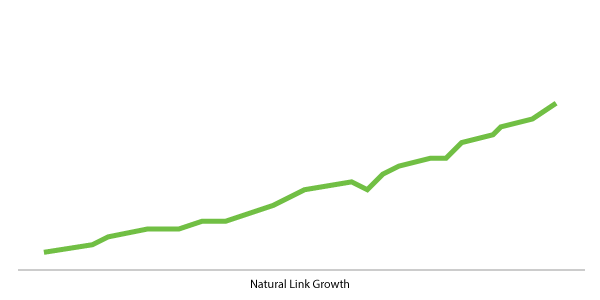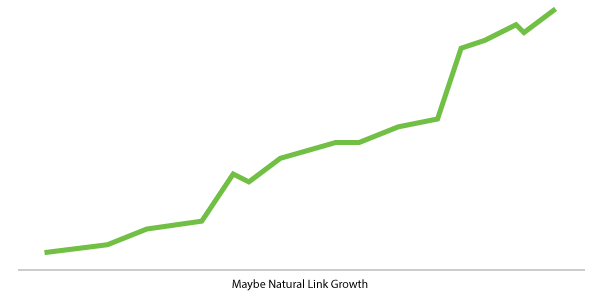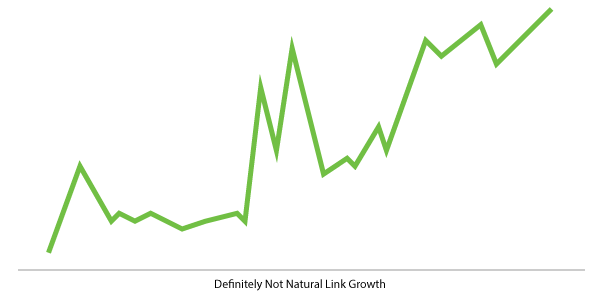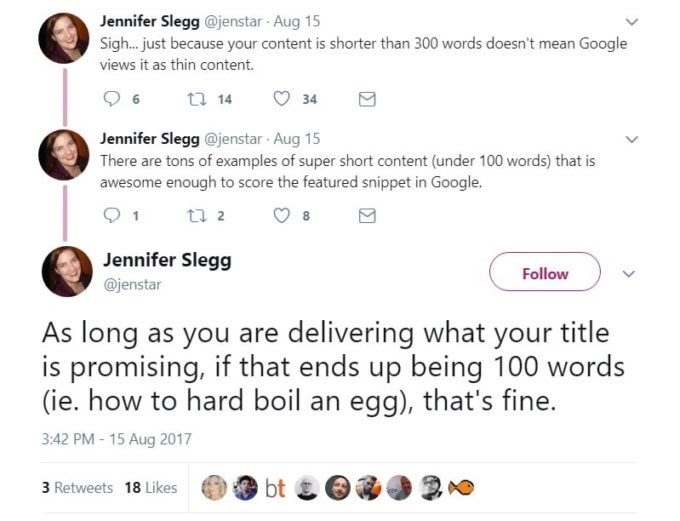One of the most common questions I get as an SEO professional is, “How long does SEO take?”
It’s also one of the most frustrating questions because, while clients understandably want a definitive answer, there is simply no way to provide one due to all of the variables involved.
This is because, in addition to all of the variables that play a role in the optimization of your own website, you also have to evaluate those same variables in your competitors’ optimization efforts.
This can make an already complex question infinitely more difficult to answer.
To steal a line from “Pawn Stars”:
“Best I can do is…”
The best I can do is give you a range of four months up to a year.
That range is based on three key variables that determine how long your SEO will take, which are:
Advertisement
Continue Reading Below
- Competition
- Inbound links
- Content
It’s important to point out that even with the data behind these variables, there is no formula to answer this question.
However, there is a lot more to answering it than simple guesswork.
Figuring out how long your SEO will take comes down to first evaluating the data behind these three variables, beginning the work and evaluating how quickly you begin to see results, and then extrapolating that to get an idea how long it might take to hit a particular position.
The Role of Competition in How Long SEO Takes
If you’re selling something like salmon-flavored breakfast cereal, you probably won’t face any competition.
However, those of us selling products and services that real people will actually buy are going to face varying degrees of competition based on demand.
Advertisement
Continue Reading Below
For example, a plumber serving a small local market would face less competition than a real estate brokerage serving a large city, which would face less competition than a national mortgage company.
As you might imagine, the more competing webpages you’re up against, the longer it will take to climb to the top of the search results.
This will follow a consistent pattern where it’s both easier and faster to outrank the lower pages, but as you climb the search results, each subsequent step will often take significantly more effort and time.
This is both because of the volume of competitors and the fact that the top-ranking pages tend to have experienced SEO professionals behind them.
An often overlooked aspect of competition it’s the correlation between the volume of competition within a niche and the competency of the SEO professionals behind the top-ranked webpages in that niche.
Think about it like this:
Demand drives companies into a niche, leading to increased competition.
That competition pushes them to offer more competitive deals, which means they must take a larger share of the market in order to remain profitable.
This is an environment that usually favors larger companies with deeper pockets – and they can afford to hire the best SEO professionals in the industry.
If you’re up against this situation, you’ve got a longer and tougher battle ahead of you.
So we need to evaluate all aspects of our competitors’ SEO, but we need to look beyond just where they stand today. That’s only a starting point.
We also have to look at their activity over the previous several months, and then continue to track their activity going forward.
Advertisement
Continue Reading Below
This is important because, in order to outrank your competitors, you need to put in more effort than they are if you want to pass them.
The Role of Inbound Links in How Long SEO Takes
It’s no secret that links still play a huge role in SEO, but their impact on how long it takes depends on several deeper factors.
The first is the volume of links to your website.
Generally, more links will help you achieve SEO success more quickly, but it’s not just a numbers game.
Generally speaking, fewer, high-quality links from relevant websites will have a far greater impact on your results than a greater volume of low-quality links from irrelevant websites.
This is also important because high-quality links are generally more difficult to earn, so they will be more difficult for your competitors to replicate.
And they tend to last longer, as opposed to links generated using automated methods.
But the speed at which you earn links and the speed at which you have historically earned links can also be factors because, generally, an abrupt increase could indicate an unnatural attempt to manipulate ranking.
Advertisement
Continue Reading Below
If you’re using methods that don’t meet Google’s Webmaster Guidelines, and you have an abrupt increase in the number of inbound links that trigger a manual review, you could end up facing a penalty.
This looks natural:

This looks less natural but depending on other factors, such as recent media coverage, a new product launch, or an amazing content marketing campaign, it could be completely natural:

This looks about as natural as a spray tan:

So, generally, the faster you can earn relevant, high-quality links, the faster you will rank, but that comes with a caveat.
Advertisement
Continue Reading Below
Your link velocity – the speed at which you earn links – should have relatively stable growth.
If your link building tactics follow Google’s guidelines, that should happen naturally.
It’s usually only when you use black hat tactics that you see unnatural patterns that could hurt your progress.
The Role of Content in How Long SEO Takes
The content published on your website also plays a role in how quickly you see results, and the first thing you need to know is that quality matters a lot.
Days of churning out hundreds of 300-word articles you ordered on Fiverr aren’t going to move the needle when it comes to your ranking.
Now, don’t interpret this to mean that each piece of content you publish needs to be a 4,000-word beast.
In fact, there is no minimum or even ideal length – content simply needs to be long enough to solve a visitor’s problem.

There is a myth that you should publish new content slowly, which comes from the theory that publishing lots of new content at once could look unnatural to Google, and thus, could hurt your ranking.
Advertisement
Continue Reading Below
It’s understandable how people could believe this myth, but it’s been officially debunked by Google.
If you have great content ready to go, then there is no reason, from an SEO perspective, not to publish it immediately.
The sooner you get it out there, the sooner it will have a positive impact on your ranking.
Waiting only makes your SEO take longer.
It’s worth noting that the ranking of a webpage does correlate with its age.
In other words, newer pages tend not to rank as well as older pages, but that is due to other factors, not age.
On that note, I recommend maintaining a consistent publishing schedule, rather than publishing in surges though, for two reasons:
- It shows Google that new content is added to your website on a regular basis, which generally encourages their spiders to crawl it more frequently. This helps to speed up your SEO efforts.
- It encourages users to return to your website more frequently, which may help send positive user experience signals to Google, and as a result, speed up your SEO efforts.
However, it’s not just creating content.
Deleting content can play a positive role in how long your SEO takes, as well.
Advertisement
Continue Reading Below
The key is determining which content to keep, which to improve, and which to delete.
Danny Goodwin hosted a webinar on this topic, where he explained how Search Engine Journal used this approach to cull a number of underperforming pages, which helped to boost the site’s overall performance in the search results.
Ultimately, the key is to create original, useful content that solves your audience’s needs, and continually improves.
And if you needed another reason to do this, higher-quality, long-form content tends to earn more links compared to low-quality and/or shorter content.
In fact, Backlinko’s Brian Dean analyzed 912 million blog posts and determined that long-form content earns an average of 77.2% more links than short articles.
So while content plays an important role in its own right, it also impacts your link building efforts, so it’s like a two-for-one.
So, Is It All Just an Educated Guess?
Our job is a lot like that of meteorologists, where despite all of our knowledge, experience, and tools, we often get things wrong.
Advertisement
Continue Reading Below
And much like my local weatherman, whom I want to choke until he turns blue when my beach plans are ruined by the rain that he promised wasn’t going to happen, our clients are often just as frustrated when they don’t see results from their SEO campaign as quickly as they would like.
Part of the job of an SEO professional is to manage client expectations.
This is an area that many fail in.
Thanks to being told what they wanted to hear by far too many practitioners, many clients today have unrealistic expectations. As a result, many people think this is something that only takes a few weeks or even months.
You might begin seeing improvements in organic ranking and an increase in traffic for keyword topics with little competition in just a few weeks.
On the other hand, moderately competitive topics might takes months, while highly competitive phrases could even take one year or more!
For example, my team was able to rank a website #1 for the term “marketing company,” which produced a steady flow of leads for several years.
Advertisement
Continue Reading Below
However, despite our skills, manpower, and resources, it took us about a year of consistent work to achieve that.
On the other hand, a particular client with virtually no digital presence came to us when a website had published some unflattering information about him that was taken completely out of context.
Since it held the first position in Google for his own name, this had cost him a considerable amount of business.
Fortunately, there was little competition for his own name, and that website didn’t have much authority, so we were able to fill the first several pages in the search results with pages we controlled in just a few weeks.
I’ve also seen cases when clients and even agencies have used tactics that violate Google’s Webmaster Guidelines in an attempt to speed up the process.
While this may work in the short term, you will eventually face a penalty and end up further behind where you started.
Advertisement
Continue Reading Below
From the Horse’s (Google’s) Mouth
You need to be prepared to invest several months to a year before seeing results from your SEO efforts, but even then, you won’t be king of the hill.
Here’s what Google said about it.

In fact, according to a comprehensive statistical analysis by Tim Soulo, only 5.7% of all newly published pages will get to Google’s top 10 within a year.
Advertisement
Continue Reading Below
And even once you do, you won’t be able to rest on your laurels because your competitors – both current and newcomers – will constantly be gunning to take that position from you.
In other words, this is an ongoing effort that will never really be complete.
Conclusion
You can’t accurately predict exactly how long SEO takes until you start putting in the work.
However, you can make a highly educated guess based on certain variables. Then, over time, you can get a better idea of how long it may take within your particular niche against your competitors.
Featured Image Credit: Paulo Bobita


